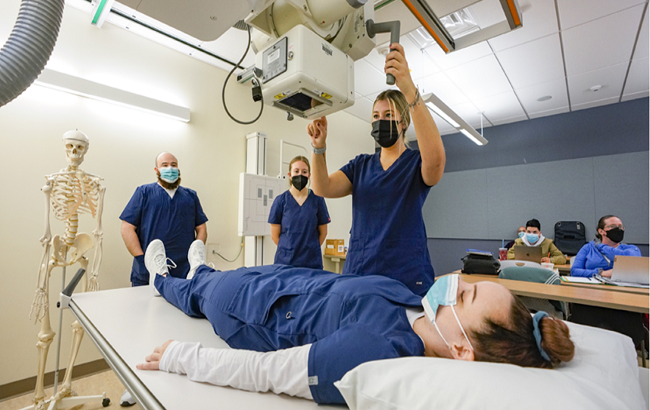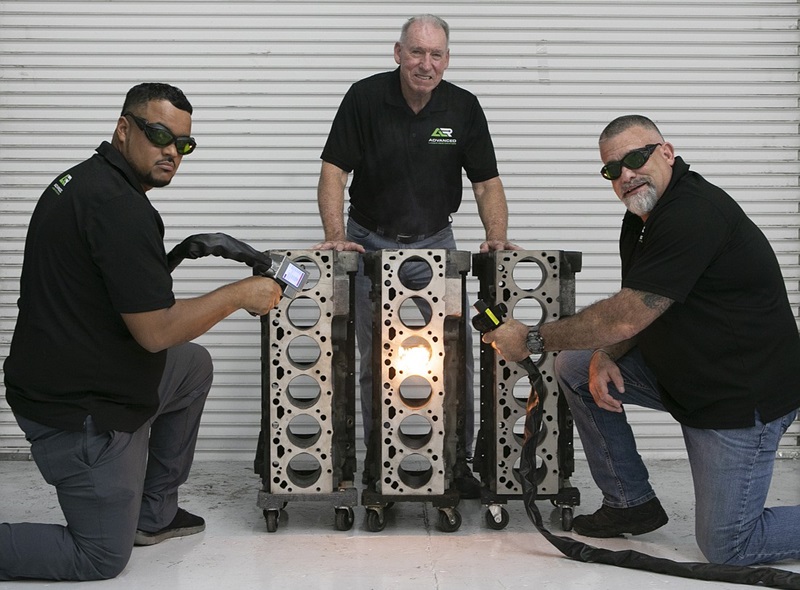Embarking on a career in healthcare is both fulfilling and impactful, and attending a radiology technician school is a fantastic way to combine technology with patient care. This guide dives into seven transformative insights about these programs, from curriculum details to career paths, to help you understand why this could be the perfect choice for you.
1. Radiology Technician: The Perfect Blend of Tech and Healthcare
Radiology technicians, also called radiologic technologists, play a critical role in diagnosing medical conditions through imaging. At radiology technician school, you’ll learn:
- How to operate X-ray, MRI, and CT machines.
- Patient interaction and communication skills.
- Best practices in radiation safety.
What Makes This Career Game-Changing?
- It’s a mix of hands-on technology and compassionate care.
- You become a key player in patient diagnosis and treatment.
Pro Insight: Graduates are in high demand, ensuring job stability and career growth.
2. Core Curriculum and Training Programs
Radiology technician schools offer a mix of theoretical and practical learning to ensure well-rounded training.
Core Subjects
- Anatomy and Physiology: Deep understanding of body systems.
- Radiographic Imaging: How to capture and analyze medical images.
- Radiation Physics and Protection: Minimizing exposure risks.
- Patient Care: Ensuring comfort and clear communication.
Clinical Training
Hands-on experience forms the cornerstone of these programs:
- Real-world practice in hospitals or imaging centers.
- Exposure to diverse medical scenarios under expert supervision.
3. Accreditation: The Key to Career Success
Choosing an accredited program is non-negotiable. Accreditation ensures your education meets industry standards and sets you up for licensure.
Top Accrediting Body:
- Joint Review Committee on Education in Radiologic Technology (JRCERT)
Accreditation guarantees that the curriculum prepares you for certification exams and professional practice.
4. Certification and Licensure
Becoming a licensed radiology technician requires both education and certification. Most programs integrate preparation for the ARRT (American Registry of Radiologic Technologists) certification exam.
How to Get Certified
- Complete an accredited program.
- Pass the ARRT exam.
- Pursue state licensing if required.
Benefits of Certification
- Higher earning potential.
- Broader job opportunities in specialized fields.
5. Specializations and Career Growth Opportunities
Radiology technician school opens doors to a variety of specializations:
- MRI Technologist: Operating MRI machines for detailed imaging.
- CT Scan Specialist: Creating cross-sectional images of internal structures.
- Mammography: Early detection of breast cancer.
Why Specialize?
Specializing enhances your expertise, makes you indispensable in your role, and increases salary potential.
6. Job Outlook and Salary
The field of radiology technology is growing steadily, offering robust job security and competitive salaries.
Key Stats
- Median Salary: Around $65,000 annually (source: U.S. Bureau of Labor Statistics).
- Job Growth: 7% projected growth, faster than the average for other fields.
Factors influencing salary include location, specialization, and experience.
Tip: Focus on regions with a high demand for healthcare professionals for better opportunities.
7. The Future of Radiology: Cutting-Edge Trends
Radiology technician schools now include training in emerging technologies. Staying updated ensures you remain a leader in the field.
Technological Advances to Watch
- Artificial Intelligence: AI aids in faster and more accurate diagnoses.
- 3D Imaging: Improved imaging for surgeries and treatments.
- Portable Diagnostic Tools: Making imaging accessible in remote areas.
Pro Insight: Explore resources like Plug Tech to stay informed about technological advancements.
How to Choose the Best Radiology Technician School
Picking the right school is essential for your success. Here are key considerations:
- Accreditation: Ensure the program is JRCERT-accredited.
- Clinical Partnerships: Schools with hospital affiliations provide better practical training.
- Student Support: Look for programs offering career counseling and job placement.
Top Resources
- The JRCERT website lists accredited schools.
- Schools like KPSAHS provide comprehensive programs tailored to current industry needs.
Radiology technician programs near me
Radiology technician programs near me offer accessible education to prepare students for careers in radiologic technology. These programs focus on hands-on training, combining classroom knowledge with clinical experience. As a radiology technician school, these institutions prioritize skills like operating imaging equipment, patient care, and understanding medical ethics. Finding local radiology technician schools ensures convenience and often reduced costs compared to out-of-state options. To locate the best nearby programs, researching accreditation, student reviews, and success rates is crucial.
Affordable radiology technician schools
Choosing affordable radiology technician schools can significantly impact your career without burdening you with student debt. Many community colleges and state-funded institutions provide quality radiology technician school programs at lower tuition rates. Affordable options don’t compromise on curriculum but may offer smaller class sizes or fewer amenities. Scholarships, grants, and financial aid can further reduce costs, making it easier to pursue a career in this rewarding field. Aspiring students should explore affordable programs accredited by the Joint Review Committee on Education in Radiologic Technology (JRCERT).
Radiologic technologist associate degree online
The radiologic technologist associate degree online is ideal for students seeking flexibility in their education. These programs offer the same comprehensive curriculum as in-person radiology technician school courses, emphasizing imaging techniques, anatomy, and patient safety. Online degrees allow learners to balance their studies with work or personal commitments while gaining access to virtual simulations and interactive lessons. Accreditation remains a critical factor for ensuring quality education and eligibility for certification exams.
Best radiology technician schools in [state/city]
Finding the best radiology technician schools in your area ensures a top-tier education aligned with industry standards. These schools provide advanced training in diagnostic imaging, radiation safety, and medical ethics. The best radiology technician school options often boast high certification pass rates, state-of-the-art facilities, and internship opportunities with leading hospitals. Comparing programs based on location, cost, and student support services helps identify the ideal fit for your career goals.
What is the cost of radiology technician school?
The cost of radiology technician school varies widely depending on location, program type, and institution. Tuition fees can range from $6,000 at community colleges to over $20,000 at private institutions. Additional expenses include textbooks, lab fees, uniforms, and certification exam costs. Scholarships and financial aid can alleviate the financial burden, making radiology technician school more accessible to diverse students. Researching costs beforehand and comparing value for money ensures a smart investment in your education.
FAQs About Radiology Technician School
How long is a typical radiology technician program?
Programs range from 1-2 years for certificates to 2 years for associate degrees.
Can I complete my training online?
Some schools offer hybrid models combining online coursework with in-person clinical practice.
What are the job prospects after graduation?
With growing demand, graduates find jobs in hospitals, diagnostic centers, and outpatient facilities.
Do I need math and science skills for this career?
Yes, foundational knowledge in math and science is critical for success in this field.
Conclusion
Enrolling in a radiology technician school is a powerful step toward a fulfilling career. With a mix of cutting-edge technology and patient interaction, you’ll be making a real difference in healthcare. Stay informed, explore opportunities for specialization, and leverage resources like Plug Tech to stay ahead in this dynamic field.
Are you ready to transform your future? Start your journey today!
You May Also Like:
Ultrasound Technician Jobs Near Me: 7 Exciting Opportunities for Growth




